Featured Speakers
Title:
That Obscure Subject of Resilience: Meditations on Global Health
Who:
Dr. Adia Benton, Assistant Professor, Department of Anthropology, Program of African Studies, Northwestern University
Abstract:
Resilience has been adopted in public health to address communities’ capacity to adapt to, endure and recover from health crises. Critics of the concept have argued that, in its most common applications, resilience frameworks disproportionately locate responsibility for responding to crises in communities themselves, drawing attention away from structural causes of crises. Rather than resolve the ‘problem’ of whether the notion of resilience is good or bad for health equity, I draw on case studies of recent health crises to highlight the tensions that such critiques reveal about the blind spots of global health ideology, more broadly, and who is (the) subject to (and of) resilience frameworks.
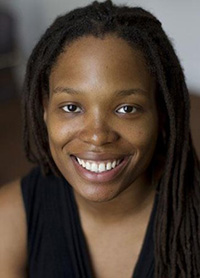
Bio:
Adia Benton is an Assistant Professor of Anthropology at Northwestern University and author of HIV Exceptionalism: Development through Disease in Sierra Leone (Minnesota, 2015). She earned her Master’s in Public Health from Emory University and her PhD from Harvard University and is now studying public health and medical anthropology. Her book, HIV Exceptionalism, explores the treatment of AIDS as an exceptional disease and the recognition and care that this takes away from other diseases and public health challenges in poor countries. Her current research is on surgical care in poor countries, focusing on the preconceptions about experience, expense and availability. She is also researching the challenges and opportunities of resilience-based public health policies. Benton is an avid blogger and tweeter about many pressing issues, such as biopolitics, race and gender.
Title:
Scandinavian Welfare States: The Immigration Challenge
Who:
Dr. Grete Brochmann, Professor of Sociology and Human Geography, University of Oslo
Abstract:
Scandinavian welfare states are historically high trust, homogeneous societies, with an equality based social security system, which takes care of their citizens from cradle to grave. These costly, rights granting systems are now challenged by large scale immigration. Universalistic welfare states like the Scandinavian grant basic rights of life support from day one for all legal residents. Low skilled immigrants in particular have employment problems, thus having a tendency to depend on social benefits. This lecture will discuss this economic challenge as well as other dimensions of the immigration question in the Scandinavian region.
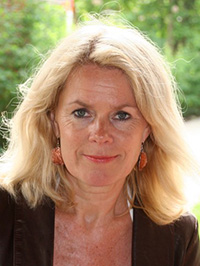
Bio:
Grete Brochmann is Professor of Sociology, Department of Sociology and Human Geography at the University of Oslo. She has published several books and articles on international migration; sending and receiving country perspectives, EU policies, welfare state dilemmas as well as historical studies on immigration. She has served as a visiting scholar in Brussels, Berkeley and Boston. In 2002 she held the Willy Brandt visiting professorship in Malmo, Sweden. She was recently head of a governmental commission on International Migration and the Norwegian Welfare Model.
Sponsored by the Svare-Toven Endowment
Title:
Food Security, Food Hegemony and Cultural Revitalization: Approaches to Resilience in Local Tribal Communities
Who:
Dr. Charlotte Coté, Associate Professor, Department of American Indian Studies, University of Washington
Bio:
Dr. Charlotte Coté is a Professor in the Department of American Indian Studies at the University of Washington and is an affiliate of the Faculty in the Canadian Studies Center of the UW’s Henry M. Jackson School of International Studies. Dr. Coté serves as co-editor for the UW Press’ Indigenous Confluences series with Dr. Coll Thrush and Dr. Matthew Sakiestewa Gilbert and co-hosts the UWTV’s Voices of the First People’s film series with Professor Daniel Hart. In 2010 Dr. Coté published her first book, Spirits of Our Whaling Ancestors: Revitalizing Makah and Nuu-chah-nulth Traditions. Her other publications include, “Food Sovereignty, Food Hegemony, and the Revitalization of Indigenous Whaling Practices,” “Maintaining Harmony and Keeping the Peace: Non-violence and Conflict Resolutions in Native American Traditional Systems of Justice,” “The Spiritual Aspects of Makah and Nuu-chah-nulth Whaling — The Guardian Spirit Complex of the Northwest Coast Tribes” and “Historical Foundations of Indian Sovereignty in Canada and the United States.” Dr. Coté is Chair of the University of Washington’s Wǝɫǝbʔaltxʷ Intellectual House Advisory Committee; a project coordinated by Dr. Coté and other UW faculty, staff and students, to build a coastal longhouse-style facility on the Seattle campus that will provide a multi-service learning and gathering space that honors Coast Salish culture and architecture. She is very active in the region’s Native community. She is President of the Potlatch Fund organization and has served in an advisory capacity to the United Indians of All Tribes Foundation and the Northwest Folklife Festival Cultural Committee.
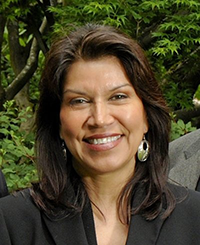
Working Title:
Beauty in the Struggle: Empowering Communities Through Hope
Who:
Joshua Cushman, PLU Alum 2008, Teacher, Lincoln High School
Bio:
Born and raised in the city of Tacoma, Joshua Cushman graduated from Pacific Lutheran University with a major in English with a Creative Writing emphasis and a minor in Spanish. In 2012, he completed an MA in K-12 Education at University of Puget Sound and this spring applied to pursue a Doctorate in Educational Leadership at the University of Washington, Tacoma. He is a father of Joshua Charles, aged two. He currently teaches Language Arts and coaches wrestling, football and track at Lincoln High School where he graduated in 2004. Josh would tell you, however, that there was a time of his life that he could not have imagined that he would be doing what he is doing now. His middle school years as a young Mexican-Spanish-Irish adolescent male growing up in single parent household that had experienced domestic abuse were marked by truancy, drugs and alcohol. It was not until he began at Lincoln High School where he received the gifts of mentorship, support and guidance from teachers, community members and coaches that believed in his intellectual abilities and where he gradually shifted the way he perceived himself. It was there that his Language Arts teacher, Bernadette Ray, and the Career Counselor known as Mrs. Zachovich, encouraged him to apply to college and for a Gates Scholarship, which he received and that funded his PLU education. It was as a PLU Leadership Fellow and when he began tutoring and mentoring high school youth at Peace Lutheran’s Hilltop Scholars Program that Josh grasped the meaning of what it is to be a servant/leader. Ever since he has been a tireless advocate for those that are marginalized and whose voices do not have a platform. Above all, he seeks to not see poverty as a deficit but as an asset and to love the children he teaches like he does his own son.
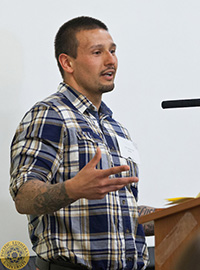
Title:
Resilience, Adaptation, and Shifting of Paradigms in Mexico City’s Water Management
Who:
Enrique Lomnitz, Director, Isla Urbana, Revolutionizing Water Sustainability, Mexico City
Abstract:
Mexico City is running out of water, and depends on a highly unsustainable model of supply, use and discharge. The deepening water crisis results in intense scarcity, especially in low income areas. In order to develop alternative forms of management, capable of increasing resilience and sustainable access, Isla Urbana has been developing rainwater harvesting systems and installing them in peri-urban communities. The process of adapting rainwater harvesting systems to existing houses and achieving community adoption presents interesting challenges and opportunities as we focus on realizing an alternative vision of urban water management in a complex megacity.
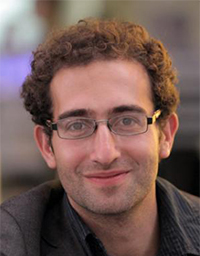
Bio:
Enrique Lomnitz has a passion for environmental issues and art. In college, he studied industrial design in order to apply his creativity to sustainability problems. He began exploring ideas to promote sustainability among marginalized communities, and an academic trip gave him the opportunity to visit disadvantaged and low-resource communities in Mexico City. Enrique identified a potential opportunity to solve the problem of water scarcity by installing rainwater capture systems. After conducting some research, he became convinced that rainwater capture was the sustainable solution to water scarcity not only in marginalized communities, but at all levels of society.
After graduation from college in 2006, Enrique traveled for three years throughout the US and Mexico working on various sustainability projects. His travels served as a time of learning and development before embarking on his own project; learning valuable sustainability project management skills. In 2009 Enrique formally launched Urban Island, an organization which aims to solve the water shortage in Mexico City by creating a sustainable system based on rainwater capture systems. Despite setbacks, he pushed forward and today relies on a multidisciplinary team to support Urban Island’s work. Lomnitz has been recognized for the Urban Island project by the UN Best Practices Water Category in 2011 and the Genera-Pase Usted incubator scholarship in 2010.
Title:
Making Hope Happen: Shining a light on one of the most powerful, and most misunderstood, emotional forces in our lives
Who:
Dr. Shane Lopez, Gallup Senior Scientist and Research Director of the Clifton Strengths Institute
Bio:
Shane J. Lopez, PhD, is the world’s leading researcher on hope. His mission is to help people of all ages exercise some control over what their future can become and to teach them how to aim for the future they want in school, work and life. He is also one of the most vocal advocates of psychological reform of America’s education system. He helps schools function less like impersonal factories and more like dynamic human development centers that help students achieve the meaningful futures they say they really want – including a good job and a happy family.
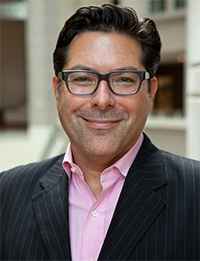
Dr. Lopez is Gallup Senior Scientist in Residence and Research Director for the Clifton Strengths Institute. As chief architect of the Gallup Student Poll, he has measured hope in over a million people. This measure of hope, engagement, and wellbeing taps into the hearts and minds of US public school students to determine what drives achievement. (It is available at no cost to any school or district interested in using it to start a hope conversation in their community.) Dr. Lopez is the director of the annual Gallup Wellbeing Forum, which convenes scholars, leaders and decision makers to discuss the issues that determine happiness and health.
He researches the links between hope, strengths development, academic success and overall well-being and collaborates with scholars around the world on these issues. He specializes in hope and strengths enhancement for students from preschool through college graduation, advocating a whole-school strengths model that also builds the strengths expertise of educators, parents and youth development organizations. Dr. Lopez has provided strengths mentoring to thousands of college students, including academic, career and life planning, and he advises schools, colleges and universities on these issues. He is coauthor of the statistical reports for the Clifton StrengthsFinder and the Clifton Youth StrengthsExplorer.
Title:
From Youth at Risk to Kids at Hope: Harnessing the power of a culture to ensure the success of all children and youth, No Exceptions!
Who:
Rick Miller, Founder and President, Kids at Hope
Bio:
Rick Miller is the founder and president of Kids at Hope, an international child and youth development organization that studies family, school and community cultures to better understand the dynamics of success and failure. Rick has spent 48 years in the field of child and youth development as a practitioner, researcher, teacher, public policy expert, and author.
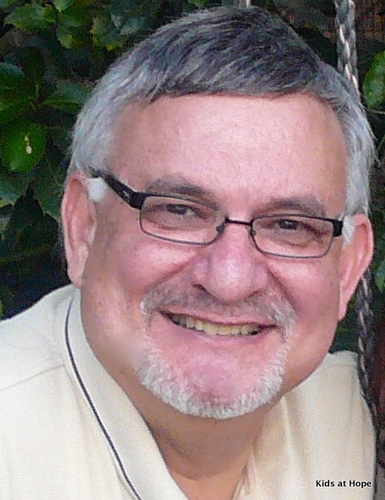
Beginning in 1993 Rick led a seven year research literature review to challenge the youth at risk paradigm. His findings have revolutionized the understanding of child and youth development and have been embraced by education, juvenile justice, law enforcement, and child welfare. Today, Kids at Hope is modeled in 19 states and Alberta, Canada; has trained over 60,000 adults, and is reaching 600,000 children and youth with a message and strategy that demonstrates all kids are capable of success, No Exceptions!
Rick has published several books including Kids at Hope: Every Child Can Succeed, No Exceptions now in its third edition and his most recent book, Youth Development-from the Trenches. He also wrote two comic books about the power of mental time travel and regularly contributes articles and editorials. Rick served in the White House during the 1980’s in support of the President’s Task Force on Private Sector Initiatives. He has also testified before Congress on issues affecting children and youth.
Title:
“After the Bitter Comes the Sweet”: Overcoming Madness and Despair in Solitary Confinement
Who:
Sidney Rittenberg Sr., PLU Visiting China Scholar and Yulin Rittenberg
Founders, Rittenberg Associates, Inc.
Bio:
Sidney Rittenberg went to China in World War II as an idealistic young GI, after training by the US Army in China Area and Language Studies at Stanford. After his honorable discharge, he spent many years helping to train Chinese journalists in English, and working on the translations of major documents, including the “Collected Works of Mao Zedong.” He was the only American citizen to be admitted to the Chinese Communist Party, until his withdrawal after the Cultural Revolution. Of his 35 years in China, 16 were spent in solitary confinement in Chinese prisons, wrongfully accused of being an American spy.
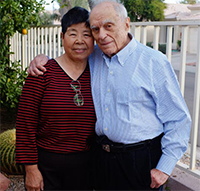
Today, Sidney Rittenberg is president of Rittenberg Associates, Inc. He and his wife and partner, Yulin Wang Rittenberg, currently help companies such as Prudential Financial, Colgate/Palmolive, Warner Music Group, MASCO and Blue Marble in China. Among their leading clients have been Intel, Hughes Aircraft, Korean Air, ClearWire, Microsoft, AIG, Prudential UK, Nextel, Levi Strauss, ARCO, PricewaterhouseCoopers, InFocus and many others. In addition, he has been a consultant in China to his close friends, Mike Wallace and the Reverend Billy Graham.
Title:
Seeds of Freedom, Gardens of Hope
Who:
Dr. Vandana Shiva, Founder, Navdanya, India
Abstract:
Dr. Shiva will speak on how industrial agriculture and the globalized food system model have created economic vulnerability for farmers, large scale displacement of rural communities, health vulnerability for all people and climate catastrophes across the planet. She will also share both Navdanya’s experience and her scientific research on how biodiversity and agroecology create economic and social health and climate resilience.
Bio:
Dr. Vandana Shiva trained as a Physicist at the University of Punjab, and completed her PhD on the ‘Hidden Variables and Non-locality in Quantum Theory’ from the University of Western Ontario, Canada. She later shifted to inter-disciplinary research in science, technology and environmental policy, which she carried out at the Indian Institute of Science and the Indian Institute of Management in Bangalore, India. Her work has contributed in fundamental ways to changing the practice and paradigms of agriculture and food.
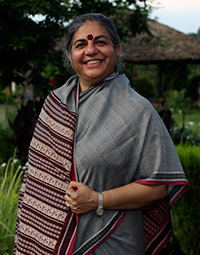
Dr. Vandana Shiva
Navdanya
Seed Freedom
The Violence of the Green Revolution and Monocultures of the Mind pose essential challenges to the dominant paradigm of non-sustainable, industrial agriculture. Through her books Biopiracy, Stolen Harvest and Water Wars, Dr. Shiva has made visible the social, economic and ecological costs of corporate-led globalization. Dr. Shiva’s contributions to gender issues are also nationally and internationally recognized. Her book Staying Alive dramatically shifts popular perceptions of Third World women. She founded the gender unit at the International Centre for Mountain Development (ICIMOD) in Kathmandu, and was a founding Board Member of the Women Environment and Development Organization (WEDO). Dr. Shiva has also initiated Diverse Women for Diversity, an international movement of women working for food and agriculture. Internationally, Dr. Shiva serves on Prince Charles’s expert group on Sustainable Agriculture and was a member of President Zapatero’s Scientific Committee in Spain. Dr. Shiva advises governments worldwide, and is currently working with the Government of Bhutan to make Bhutan 100% organic. She is also working with the Governments of Tuscany and Rome to create a hopeful and livable future for young people in these times of crises.
Sponsorship:
Dr. Shiva’s visit is made possible by sponsorships from the Norwegian Royal Ministry of Foreign Affairs and the Arbaugh Family Foundation and in collaboration with the PLU Philosophy Department’s annual Food Symposium.
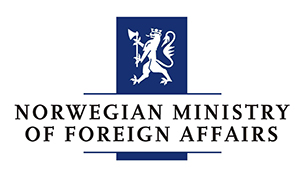
Working Title:
Critiques of the Apocalypse: End Times and Resilience in Contemporary Mexico
Who:
Juan Villoro, Prize-winning Author and Political Commentator
Bio:
Juan Villoro (b. 1956), arguably Mexico’s most important living public intellectual, is the author of several novels, short story and essay collections, plays, chronicles and children’s books. He is also a weekly columnist for the Mexican newspaper Reforma and is called upon frequently to contribute to “El País” and “El Periódico de Catalunya” as well as other national and international press media. A graduate in Sociology from the Metropolitan University Iztapalapa, he has been Professor of Literature at Mexico’s National University, and a Visiting Professor at Yale, Princeton and the Pompeu Fabra University in Barcelona. His works have garnered him distinguished awards including the Herralde Prize in Spain for his novel El testigo (The Witness), the King of Spain Prize for Journalism, and the Antonin Artaud Prize for his collection of short stories, Los culpables (The guilty), among others. His works are increasingly available in translation. These include the English translation of his short-story collection, The Guilty (Braziller, 2015). His novel for juvenile readers, El libro salvaje (The Savage Book), which sold more than one million copies in Spanish, has been translated to French, Italian, German and Portuguese.
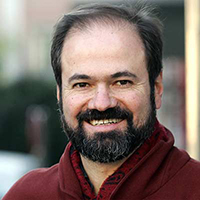
In the words of Jeffrey Lawrence and Carlos Fonseca: “From his early short stories to his famous crónicas, from journalistic essays to academic ones, from children’s books to literary translations of German classics, from books on soccer to monumental novels, his capacity to intertwine, in every possible register, political reflections and literary imagination, provides each of his interventions with an impressive poignancy. His work is an exploration into the perverse social fantasies driving Mexico’s violent modern history and leaves nothing untouched.” (see BOMB Magazine article)
Featured Panels
Panel Title:
Women in Prison and Transformative Learning
Panel Abstract:
Incarceration offers countless opportunities to map the territory of personal resilience. How does the opportunity to obtain an education empower women in prison to be resilient and to combat hopelessness? Women in prison are often the victims of sexual violence, remain under-educated and suffer from low self-esteem. This traps them in a cycle of poverty with a higher risk of their children being imprisoned. Education is the single most important factor in breaking this cycle and enabling women to become successful leaders and role models for their children and communities.
After prison, many face an additional, indeterminate sentence called “reentry.” Poverty, debt, limited housing, restricted employment opportunities and a lifetime “felon” label can obstruct the path to a new beginning. Returning to a hostile or indifferent community, healing broken family relationships and adjusting to social and technological changes proves insurmountable for some. Two-thirds of released prisoners are rearrested within 3 years. From another perspective, 1 out of 3 overcomes incredible odds to succeed. How do these resilient people frame their stories?
Who:
Danielle Azevedo
Bio:
Danielle Azevedo is currently a full-time student at Clark College. After finishing her associates degree there, Danielle plans to transfer to the University of Washington to continue her studies in Structural Engineering. While serving time at the Washington Correctional Center for Women (WCCW), she participated in FEPPS and The Village, She notes that while at WCCW, “I not only was able to discover who I was but I found hope. My eyes were opened to a whole new world through education.”

Who:
Dr. Tanya Erzen, Freedom Education Project Puget Sound (FEPPS) and The Village Program, Gig Harbor Women’s Prison
Bio:
Tanya Erzen is an Associate Professor of Religion and Gender Studies at the University of Puget Sound and the executive director of the Freedom Education Project Puget Sound, a college program in the Washington Corrections Center for Women. In 2014, she received a Soros Justice Fellowship from the Open Society Foundation. Her book God in Captivity: Redemption and Punishment in American Faith-Based Prisons is forthcoming from Beacon Press in 2016. Her first book, Straight to Jesus: Sexual and Christian Conversions in the Ex-Gay Movement (California, 2006), received the Ruth Benedict Prize and the Gustave O. Arlt award. Erzen also authored Fanpire: The Religion of Twilight (Beacon Press, 2012) and is co-editor of Zero Tolerance: Quality of Life and the New Police Brutality in New York City (NYU, 2001). She is a recipient of fellowships from the National Endowment for the Humanities, Social Science Research Council, Open Society foundations and Hedgebrook Writer in Residency.
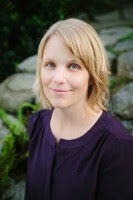
Who:
Keisha Patterson
Bio:
Keisha Patterson, a former participant in The Village at WCCW and graduate of New Connections, now works at the Center for Dialog and Resolution as a Facilitative Mediation Assistant working with Parenting Plans, Workplace and Dissolution mediations. Keisha is also a co-facilitator for the Community Partnership for Transition Services. The mission of this multi-agency organization is to promote the successful transition of adults into the community after incarceration.

Who:
Theresa Power-Drutis, Director, New Connections, Tacoma
Bio:
Theresa Power-Drutis is the director of New Connections, an organization dedicated to helping people successfully re-enter the community after prison. She is co-facilitator of the Community Partnership for Transitional Services (Pierce County) and of the Hilltop Village non-violent communication practice group. Ms. Power-Drutis co-founded Guadalupe House, a transitional house for people experiencing homelessness. She also co-founded The Lesotho Connection (TLC), an organization that supports community based solutions to extreme poverty in Lesotho, Africa. Similarly optimistic endeavors such as the Neighborhood Clinic, Homeless Connect and the Hilltop Madrinas are more recent volunteer commitments. For the last three decades Theresa has been involved in education, community organizing and global initiatives, particularly those related to Southern Africa. She lived in Botswana as a Peace Corps volunteer and in Lesotho while completing doctoral and post-graduate research. Ms. Power-Drutis spent time in pre and post-apartheid South Africa as well as in Afghanistan working on IT initiatives. Theresa received her PhD in Leadership Studies from Gonzaga University, BE in Technology Education from Eastern Washington University, and Certificate of Carpentry from Samuel Gompers (Seattle Central Community College).
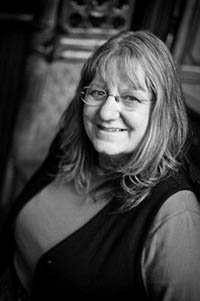
Who:
Shajuanda Tate
Bio:
Shajuanda Tate is a FEPPS alumna and is currently attending Tacoma Community College where she is close to completing her AAS in Human Services. Through her work with FEPPS, she has been a panelist and speaker committed to advocating for incarcerated individuals and their right to higher education in prison as well as post-prison support for transitioning offenders. She is a Jane’s Fellow doing grassroots work in Pierce and King counties focusing on gang intervention and prevention for at-risk youth and individuals re-entering the community after incarceration. Her passion for education equity and community development help her to find motivation, perseverance, and peace when facing adversity.

Who:
Mary Weir, Freedom Education Project Puget Sound (FEPPS) and The Village Program, Gig Harbor Women’s Prison
Bio:
Mary Weir is the program manager for Freedom Education Project Puget Sound, a college program at the Washington Corrections Center for Women. Mary attended Wesleyan University where she studied English and Philosophy and was introduced to higher education inside prison programs. After graduating, Mary worked for the Post-Prison Education Project and United Way of King County and volunteered with the IF Project. She currently serves on the United Way of King County family stability impact council.
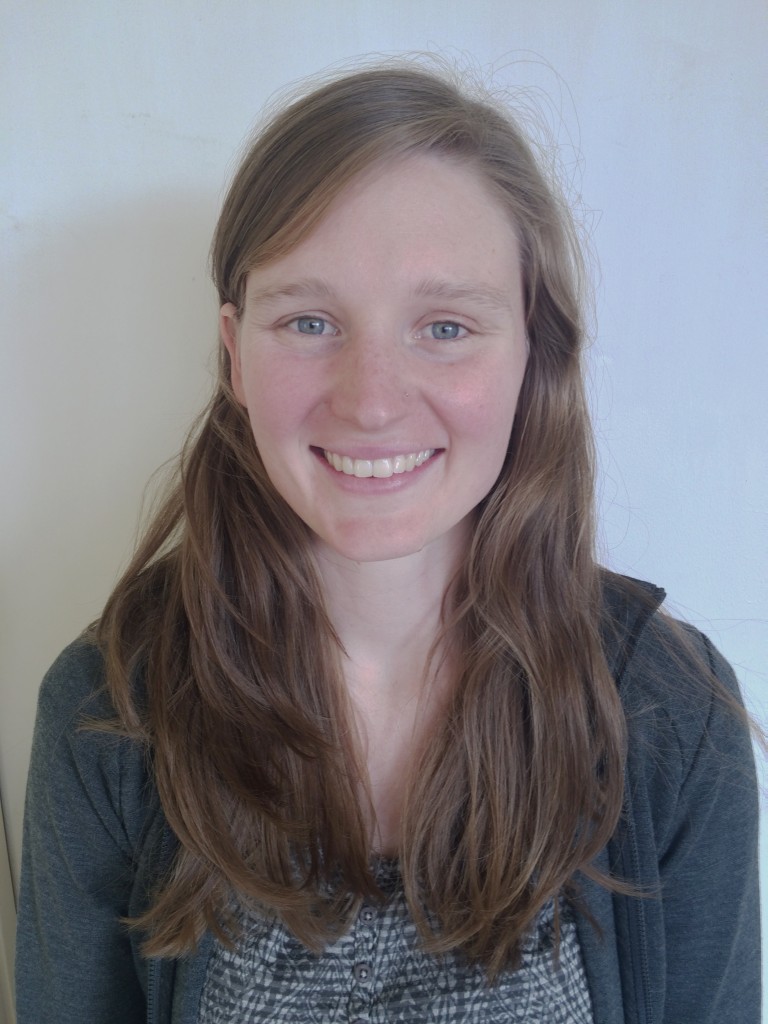
Moderator:
Daniel Lee, Vice President of Advancement, PLU; former Vice-President of External Relations, Lutheran World Relief
Bio:
Daniel Lee is the Vice President of Advancement at PLU. Prior to PLU, Daniel most recently served as Vice President of External Relations for Lutheran World Relief, an international relief and development organization with programs in approximately 35 countries, serving more than 7 million people annually. As the chief fundraising, donor relations and constituent engagement executive, Dan set the strategic direction of all external-facing efforts and guided LWR through their three most successful revenue generating years to date.
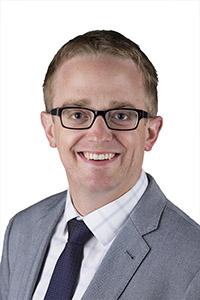
Title:
Understanding Community Perceptions of Resilience (to be confirmed)
Who:
Amy Hilleboe, Senior Technical Coordinator for Disaster Risk Reduction/Resilience, Catholic Relief Services
Bio:
Amy Hilleboe has worked in relief and development for 24 years. She has worked for Catholic Relief Services since 1993 and has spent the past eight years focused on disaster risk reduction, climate change adaptation and resilience. Prior to this, she worked primarily on disaster response and recovery programs. Amy was CRS’ DRR Advisor for the Emergency Capacity Building Project and is a co-author of Toward Resilience: A Guide to Disaster Risk Reduction and Climate Change Adaptation. She earned her MBA from the Thunderbird School of Global Management.
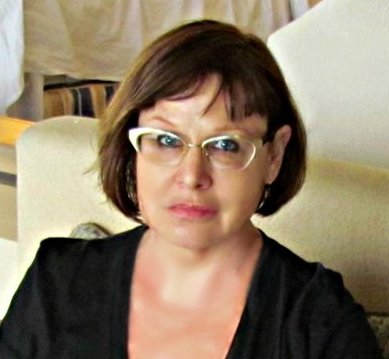
Title:
Turning the Humanitarian System on its Head
Who:
Jonathan Scanlon, Senior Advocacy Advisor, Oxfam America
Abstract:
The global humanitarian system is overstretched; inadequately investing in risk reduction and prevention, and providing assistance that is often insufficient, inappropriate and late.
Humanitarian action led by governments in crisis-affected countries, assisted and held accountable by civil society, is usually faster and more appropriate, saving more lives and alleviating the suffering of many more men, women and children. Yet, during 2007–2013, less than 2 percent of annual humanitarian assistance went directly to local actors.
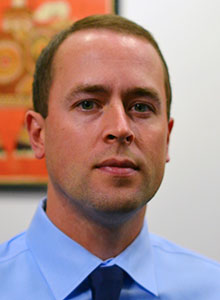
In a new advocacy effort Oxfam puts the humanitarian system under the lens and finds that it must change to remain effective; with locally led humanitarian action whenever possible; adequate funding to state and non-state actors in affected countries; and stronger partnerships between international and local actors, focusing on strengthening local capacity.
Bio:
Based in Seattle, Jonathan is Senior Advocacy Advisor for Oxfam America where he works with Oxfam supporters across the country to advocate for effective US government policies aimed at ending poverty and injustice around the world.
Jonathan is a former Presidential Management Fellow, where he served as a US delegate to the Asia-Pacific Economic Cooperation (APEC) forum, a West Africa desk officer at the US Agency for International Development (USAID) and a legislative fellow for US Senator Claire McCaskill of Missouri. His experience in the nongovernmental sector includes advocacy work with CARE USA focusing on HIV/AIDS, avian influenza and various international conflicts. At the state level, he worked for Governor Roy Barnes of Georgia and for the state’s international trade office in Atlanta. He also spent one year teaching English in Japan.
Jonathan has a BA from Emory University and an MS in International Affairs from the Sam Nunn School of International Affairs at the Georgia Institute of Technology.
Title:
Nisqually Community Garden: Towards Resilience & Food Sovereignty for the Nisqually Indian Tribe
Who:
Caitlinn Krenn, Community Garden Program Supervisor, Nisqually Indian Tribe
Additional Speakers:
Grace Byrd
Janell Blacketer

Abstract:
We will discuss the history of the past several decades of community gardening at Nisqually Indian Tribe, in the larger context of historical land stewardship and traditional food systems. We will also discuss the current programs of the Nisqually Tribal Government aimed at food sovereignty and resilience, including the Garden program, She Nah Num Seafood company, Nisqually Shellfish enterprise, treaty-right fishing, clamming, crabbing, etc., and tribal member access to hunting, fishing and gathering grounds. We will have a slideshow with pictures.
Bio:
Caitlin Krenn has been working for the Nisqually Community Garden since 2009. She has been honored to learn and grow alongside her amazing coworkers and colleagues at the Nisqually Tribe. She was born and raised in Southeastern Wisconsin and moved to Washington in 2003. Her first experience gardening was in her grandmother’s rose and vegetable garden, and as an adult she has worked at small-scale organic farms in Washington and Wisconsin. She also studied sustainable agriculture at The Evergreen State College and worked to secure affordable land and housing for farmers during her tenure at South of the Sound Community Farm Land Trust. Caitlin believes that restoring relationships with the food we eat is fundamental to our collective liberation.
Title:
Cultural Restoration, Encouraging Resilience Across Landscapes and Generations
Who:
Adam Lorio, Education Program Manager, Samish Indian Nation (in Antacortes)
Abstract:
Sustainablity of our life practices are integrally linked to the landscapes where we live and the teachings of the cultures we come from. Adam will share observations and stories from his experience working with the Samish Indian community to renew landscapes and cultural traditions.
Bio:
Adam is the Education Program Manager for the Samish Indian Nation. He is passionate about connecting communities and cultures. He works to help integrate Samish Traditional Knowledge into educational opportunities and scientific investigations including natural resource preservation and restoration programs.
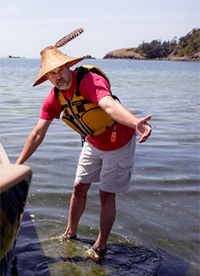
Who:
Joseph Pavel, Skokomish Indian Tribe
Bio:
Joseph Pavel serves as Vice Chairman of the Skokomish Tribal Council, a position he’s held since 2009. Joseph Pavel, who has a BS in Fisheries, from the University of Washington, came home in 2008 to work for his own people as the Director for the Department of Natural Resources. His passion for protecting the Tribe’s most precious resources, fisheries and the environment is demonstrated through his chosen profession and board memberships. His previous job at the Northwest Indian Fisheries Commission was also connected to the Skokomish Tribe and caring for the Skokomish Watershed. He continues to seek ways to address the many issues facing his Tribe through his work plus his active participation on the Tribe’s committees, Council and boards.
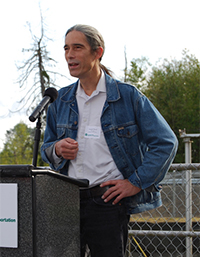
Joseph has served on Council in various offices for much of his life. From 2009 until present Joseph Pavel has been the Skokomish Tribe’s Council Vice Chairman. Joseph was first elected as General Council President in 1989 and in 1990 he was elected to serve as both President and Tribal Councilmen. He was appointed to the office of Vice Chairman in 1991 and again in 1992. In 1993 he served his people as Council Chairman and in 1994 as a Council member. In 1998 and 1999 he was again elected the annual term of General Council President. Joseph was elected to Council Office in 2000 where he was selected to be Vice Chairman. In 2008 and 2009 he was elected and appointed Chairman. From 2009 until today he serves the Skokomish membership as the Vice Chairman of the Skokomish Tribal Council with his term completing June 2016.
Panel Title:
Lutes in the World: PLU Students and Alumni Reflect on their Research and Work on Resilience
Panel Abstract:
Resilience is a multifaceted and complex concept – a concept which one may encounter through a variety of experiences, and which draws upon a diverse array of disciplines. PLU students and graduates have seen instances of resilience relating to race, ethnicity, indigeneity, language, class, food, and citizenship status, amongst others. In this panel, PLU alumni and current students reflect on their experiences and witnessing of resilience around the world, from educational institutions in Parkland and Puyallup to migration experiences in Mexico and India and dealing with development in Thailand and Togo.
Student and Alumni Panelists:
Courtney Lee
- Current Student at PLU
- Graduating in Spring 2016
- Majors: Chinese Studies and Global Studies
- Minor: Religion
- Presentation Title: “Paradoxical Resilience: Youth Identities in a Tibetan Refugee Community”
Vicky Murray
- College and Career Counselor, Chief Leschi Schools, Bad River Band of Lake Superior Chippewa Tribe of Indians
- Graduated from PLU in 2015
- Major: Sociology
- Minor: Communication
- Presentation Title: “Resilience Among Urban Indigenous Youth”
Princess Reese
- Assistant Education Adviser, Metropolitan Development Council’s College Bound Program at Lincoln High School
- Graduated from PLU in 2014
- Majors: Anthropology and Women’s and Gender Studies
- Presentation Title: “Deciding on Poverty: Choices for Service and Development”
Sarah Caitlin Slinker
- Returned Peace Corps Volunteer, Togo 2014-2015
- Graduated from PLU in 2013
- Majors: Global Studies and French
- Minors: Political Science and Anthropology
- Presentation Title: “Resilience in Rural West Africa: How Togolese Women Find Hope, Harmony and Healing”
Sara Stiehl
- Graduate Student in Anthropology at the University of Colorado-Boulder
- Graduated from PLU in 2013
- Majors: Anthropology and Global Studies
- Presentation Title: “Social Resilience at the Nexus: Contemporary Forms of Resistance against the Xayaburi Dam”


